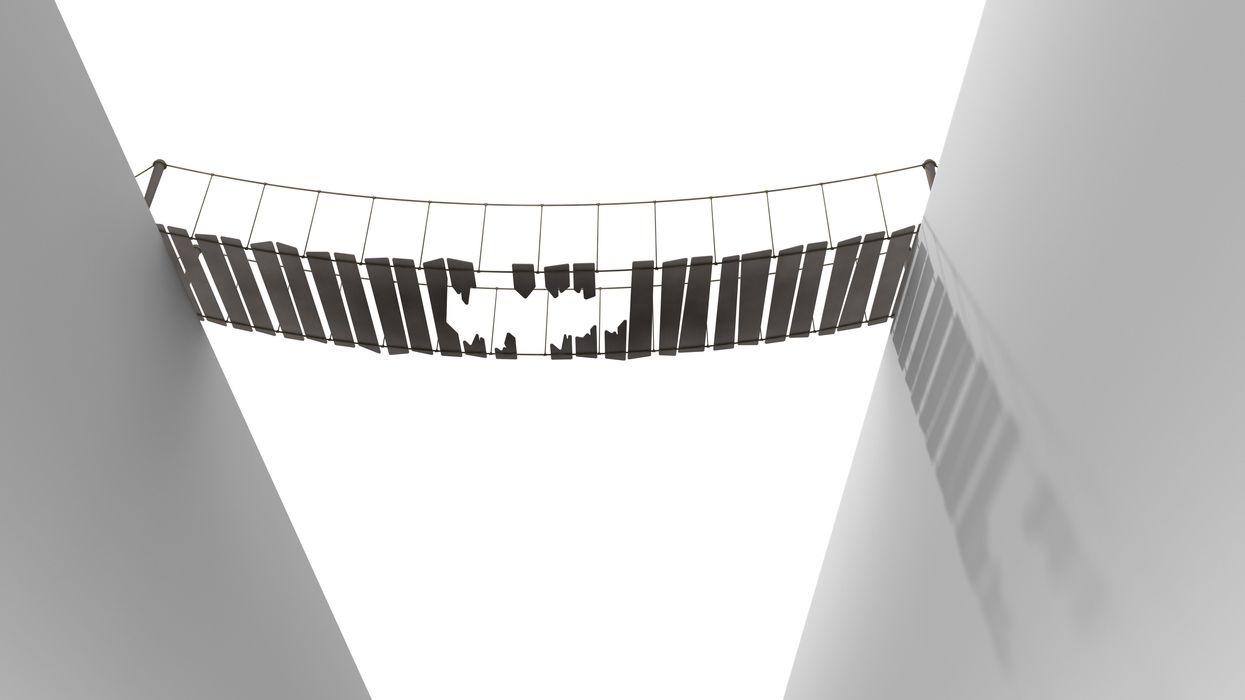Gates and Gerzon are co-directors of Philanthropy Bridging Divides, a transpartisan conversation among America's philanthropic leaders.
In last month's column we looked closely at our fellow citizens who do not want to bridge divides. There are clearly those who disagree with the very concept of bridging and want to fight a war to win.
But there is another group that is harder to recognize. They are the "false bridgers" or "manipulative bridgers." Whether they are conservatives reaching out to progressives or, more commonly, progressives reaching out to conservatives, their intentions are to use the concept of bridging to advance their cause, not to find shared ground.
- They seek to convene an "open dialogue" and "welcome multiple points of view."
- They promise that no one will be "put in a box" or be "labeled."
- They often encourage participants to speak "from the heart" and "listen to understand."
- They claim it is not about who is "right" but about "building trust."
- They pledge fairness and "equal time," and ensure that every voice will be heard.
Based on this well-crafted, time-tested, Machiavellian language, these so-called "bridgers" use the language of listening and inclusion to in essence build a trap for their opponents.
In most cases these so-called bridging events fail, as they should. They also serve to poison the well for those who are sincere about wanting to bridge divides and hear other perspectives. We have both witnessed this professionally. People are invited into a bridging conversation that turns out to be nothing of the sort. It makes it that much harder when an authentic bridger makes a subsequent overture.
In retrospect, these efforts often do not turn out to have been on a level playing field. Yes, the conveners have used the lexicon of negotiation and problem-solving. Yes, the hosts have worked hard to get a few "diverse voices" in the room. But all too often the "outsiders" feel not only outnumbered but ultimately unheard. The more eloquently they express their "minority" perspective, the quicker the barrage of rebuttals begins. They leave these faux bridging experiences feeling disillusioned and sometimes even used.
It is tempting but wrong to excuse these failed efforts because their architects meant well and tried hard. In our experiences most of these failed efforts were designed to persuade and convert and not find shared ground. Of course both of us applaud all well-intentioned efforts, we recognize how challenging it is to bridge across the widening chasm of polarization in America today. But we also have to be honest: False bridges cause damage.
A covert desire to persuade the "other side" using the language of bridging is dangerous. Such efforts raise hopes and then dash them. They promise progress but do not deliver. They make people skeptical about words like "bridge" or "dialogue" or "partnership." They make it harder for anyone who later tries to build a real bridge to get support.
We encourage anyone who intends to be a catalyst for a "bridging" event or process to first step back and be honest about their intentions. If your desire is to "win," then the conversation is not likely a bridging one. If your heart and mind are open to learning and hearing other perspectives, then your desire to bridge is authentic. Our point is not that all conversations need to be about bridging but rather that it is critical people be clear and transparent about their intentions.
Please know that the intent of this column is not to be a warning sign that reads "Keep Out!" but rather one that says "Be Intentional!" We absolutely need more skillful, thoughtful peacemakers to step into the no man's land between the partisan armies of Left and Right and seek common ground. But we want those who meet this challenge to be safe, and to succeed — not become part of the problem that we are setting out to solve.
In our next column, we will share in more detail what we have learned about real bridging and why it matters now, more than ever.



















Trump & Hegseth gave Mark Kelly a huge 2028 gift